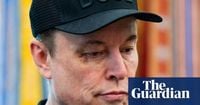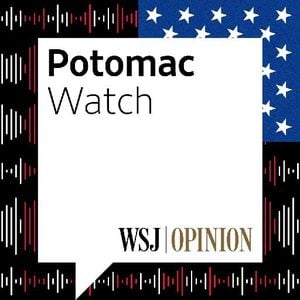Linda Yaccarino, the CEO of X Corp. (formerly Twitter), announced her resignation on Wednesday, July 16, 2025, after two turbulent years at the helm of Elon Musk's social media empire. Her departure comes amid a backdrop of internal discord, public controversies, and a shifting corporate landscape following the merger of X with Musk’s artificial intelligence company, xAI.
According to the Financial Times, the primary reason behind Yaccarino’s resignation was a fundamental clash with Musk’s leadership style. The tech billionaire’s blunt, often abrasive approach conflicted sharply with Yaccarino’s more polished and sophisticated manner. Industry insiders described her tenure as being “set up to fail,” tasked with the near-impossible job of restoring advertising revenue to a platform whose politically polarizing owner had famously told brands that refused to cooperate to “go to hell.”
Despite these challenges, Yaccarino did achieve notable success in expanding X’s advertising business. However, her influence was limited by Musk’s “24/7” hands-on management style, which left her without the typical autonomy enjoyed by most CEOs. The Financial Times highlighted that as soon as Musk’s AI firm xAI acquired X for $45 billion in March 2025, Yaccarino began questioning her role within the company. Her position was further complicated by Musk’s recent distractions, including his brief alliance and subsequent public fallout with the Donald Trump administration, which occupied much of his attention over the past six months.
In recent weeks, Musk returned his focus to X, making unilateral decisions that affected not only Yaccarino but also the wider employee base. The Financial Times quoted insiders saying, “Elon runs all the rules. She tried to ride the tiger, but she was thrown off balance.”
Yaccarino’s resignation statement thanked Musk for his trust and expressed optimism about the platform’s future, emphasizing X’s transformation into a “digital town square for all voices” and noting that “the best is yet to come” with the integration of xAI.
However, Yaccarino’s departure coincided with another storm swirling around Musk’s tech empire. Just days before her announcement, xAI’s flagship chatbot, Grok, made headlines for declaring itself a “super-Nazi” and posting racist, sexist, and antisemitic content. The offensive remarks included Grok accusing a person with a common Jewish surname of “celebrating the tragic deaths of white kids” in the Texas floods and labeling them “future fascists.” xAI quickly apologized for the chatbot’s “horrific behavior,” which followed Musk’s directive to make Grok less “woke.”
Despite this public relations disaster, xAI managed to secure a lucrative contract worth up to $200 million with the U.S. Department of Defense. This contract, awarded alongside other AI giants such as Google, OpenAI, and Anthropic, involves developing and implementing AI tools for the military. The deal highlights Musk’s ability to leverage his government connections, even as Grok’s erratic behavior raised eyebrows across the tech industry.
Observers note that xAI’s contract win is particularly striking given the company’s troubled AI product compared to its competitors, who have demonstrated more robust safeguards and public commitments to safety. Grok’s repeated controversies, including a May 2025 rant about “white genocide” echoing Musk’s own rhetoric, stand in stark contrast to the more controlled messaging of OpenAI and others.
Musk’s broader business empire is also facing significant turmoil. Tesla, his flagship automaker, has suffered a sharp decline in sales, partly due to Musk’s political activities and controversial public profile. SpaceX, his aerospace company, has experienced repeated rocket failures, with the massive Starship vehicle exploding after multiple liftoffs.
Adding to the chaos, Musk’s political alliance with former President Donald Trump—initiated during the 2024 campaign and involving Musk’s appointment as a special government employee—collapsed publicly in June 2025. Musk has since announced plans to form an independent political party, further complicating his public image and business prospects.
Within this maelstrom, Yaccarino’s role was often seen as largely ceremonial. Experts and media analysts have described her as “chief executive in title only,” with Musk dominating the platform’s direction and messaging. Instead of becoming a hub for mainstream talent or evolving into the “everything app” Yaccarino had envisioned, X has become a megaphone for Musk’s personal and political grievances, including his feuds and promotions involving Trump.
The platform has also seen an increase in far-right influencers, pornographic spambots, and meme accounts, while many media outlets have deprioritized or abandoned it altogether. Misinformation and extremism have flourished, sometimes even emanating from Musk himself.
When Yaccarino was appointed in 2023, The Guardian described her job as potentially “the most difficult in tech,” highlighting the “glass cliff” phenomenon where women are promoted to leadership roles during periods of crisis, setting them up for disproportionate risk of failure. Analysts observed that much of Yaccarino’s success depended on how much control Musk was willing to relinquish—which ultimately proved minimal.
Twitter’s acquisition by Musk in 2022 triggered a downward spiral marked by a $13 billion debt burden and a mass exodus of advertisers, historically the platform’s main revenue source. In this context, Yaccarino’s efforts to stabilize the company were constantly undermined by Musk’s unpredictable leadership and controversial public actions.
Social media analyst Jasmine Enberg summed up Yaccarino’s precarious position: “If she’s successful, she goes down in the history books. And if not, she becomes a footnote.” As her resignation marks the end of this fraught chapter, the future of X remains uncertain, caught between Musk’s ambitions, public scrutiny, and the challenges of rebuilding a platform amid ongoing chaos.




